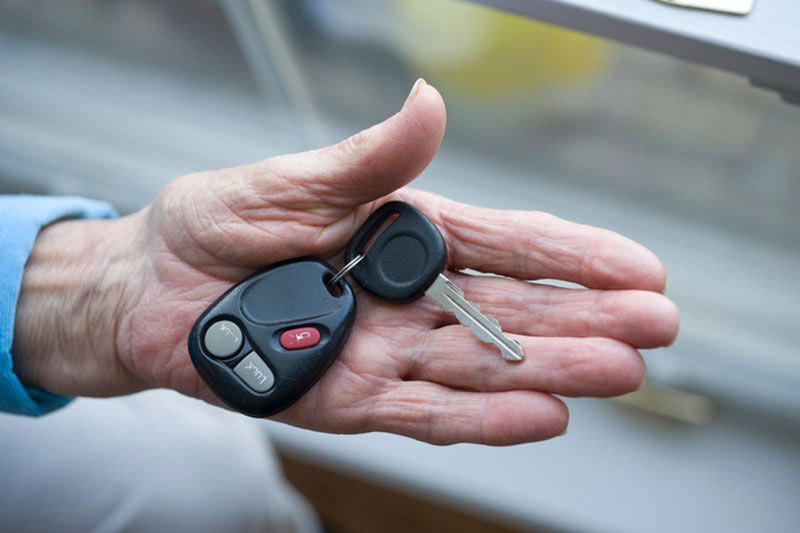
When it’s no longer safe to drive, home care services can help.
It’s a discussion none of us truly wants to have with aging parents, but one that will likely be needed at some point. Having the ability to drive wherever and whenever we choose is a key component to our feeling of freedom, yet as we get older, it may become no longer safe to drive for many different reasons: poor vision, decreased reflex and response times, cognitive problems, and more. If you’re starting to have doubts about a senior loved one’s ability to continue to drive safely, it is time to discuss giving up the car keys.
How Will You Know That It’s Time for a Senior to Quit Driving?
There are several warning signs to watch for that suggest the need for a senior to stop driving, including:
- Getting lost on familiar driving routes
- Missing traffic signals or signs
- Failure to yield or cutting off other drivers
- Making wider than necessary turns
- Not staying between the lines
- Appearing to be sleepy or not alert
- An inability to judge distances properly
- Getting easily agitated, frustrated, or angry
- Not using mirrors or turn signals appropriately
How Should You Start the Conversation About Giving Up the Keys?
First and foremost, refrain from correcting or criticizing the person’s mistakes as they are driving, as this can lead to further dangerous behaviors. When the car is parked, calmly describe specific incidents of concern that you observed as a starting point to the larger discussion in regards to the need for the senior to stop driving.
Implement the following tips to move the conversation forward and to make certain you are being heard and taken seriously. Use the conversation to reduce the senior’s stress, and to give them a solution that will empower the person to maintain independence.
Key Points to Remember:
- Enlist the help of others the senior knows and trusts, either in supplying their own examples of concerns or even in joining you for the conversation.
- Avoid blaming or shaming the person.
- Keep your temperament relaxed and encouraging so you do not seem angry.
- Discuss specific examples of worrying actions.
- Let the older adult know you’re in this together, and that together you are going to arrive at a solution that ensures safety for the senior as well as other drivers and pedestrians.
- Anticipate opposition and defensiveness, and that it might take a few conversations.
In the event that the older adult remains insistent about not stopping driving, schedule a checkup and consultation with the doctor. There may be side effects from medications, vision problems, or other health-related reasons for driving issues that can be rectified; or, the doctor may have more influence in encouraging the person to stop driving.
How Can an Older Adult Stay Independent Without Being in a Position to Drive?
Fortunately, there is a straightforward solution that enables an older adult to come and go as they wish: a professional in-home caregiver from Hearts at Home In-Home Care, a provider of home and dementia care in Kansas City and throughout the surrounding areas.
Our caregivers are available to offer transportation and accompaniment whenever and wherever a senior wants to go, including:
- Doctor appointments and procedures
- Running errands and shopping
- Visiting friends
- Going out to lunch or for a walk in the park
- Hair and nail appointments
- Exercise or other classes
- Even vacations or longer-destination outings
The best part? A care provider offers friendly company and conversations that make any outing much more fun than going alone!
Reach out to our experts in home and dementia care in Kansas City and the nearby areas at 913-440-4209 for more information about our transportation services for seniors, and help an older adult you love live their best life, safely and happily.
